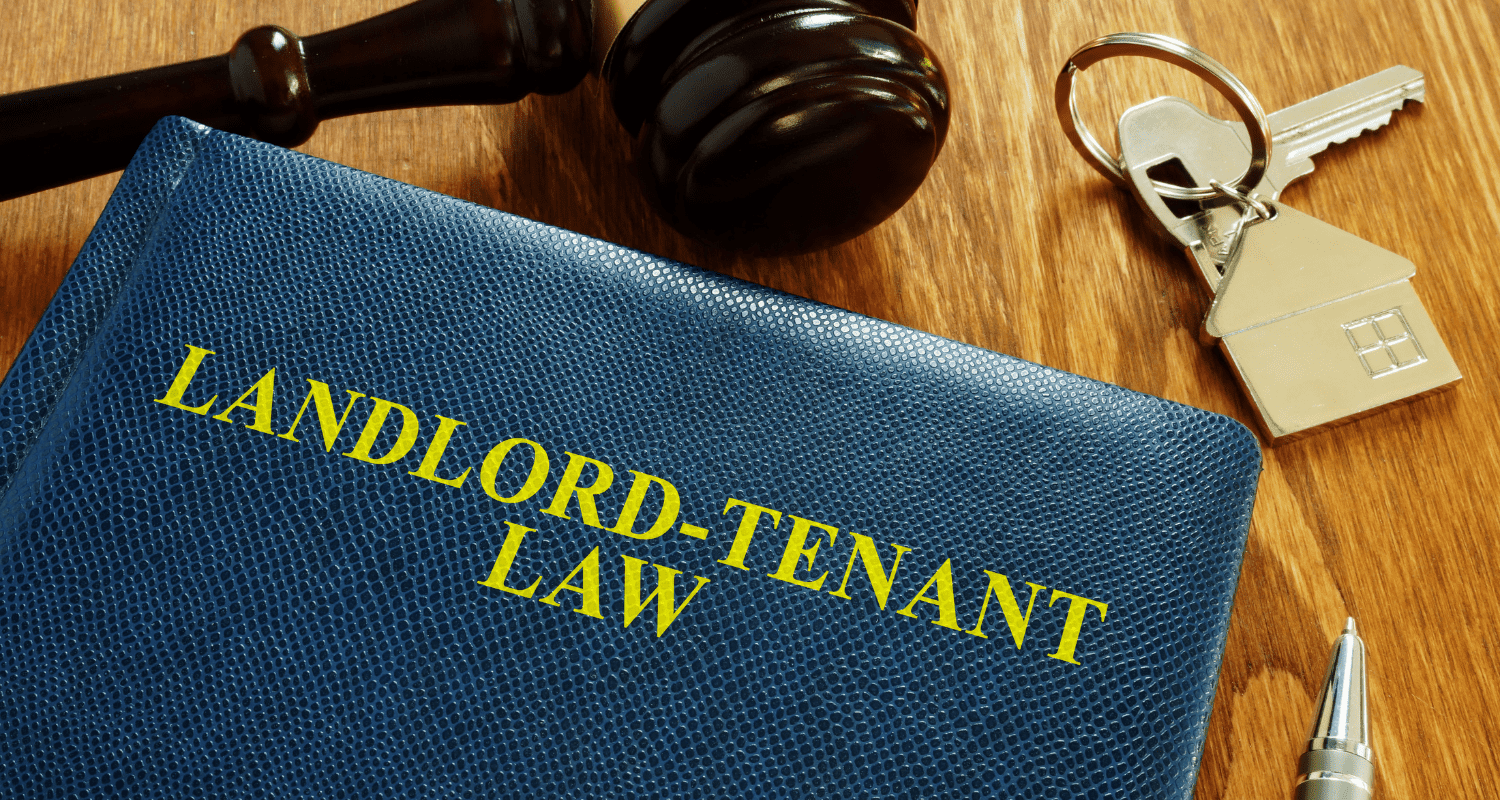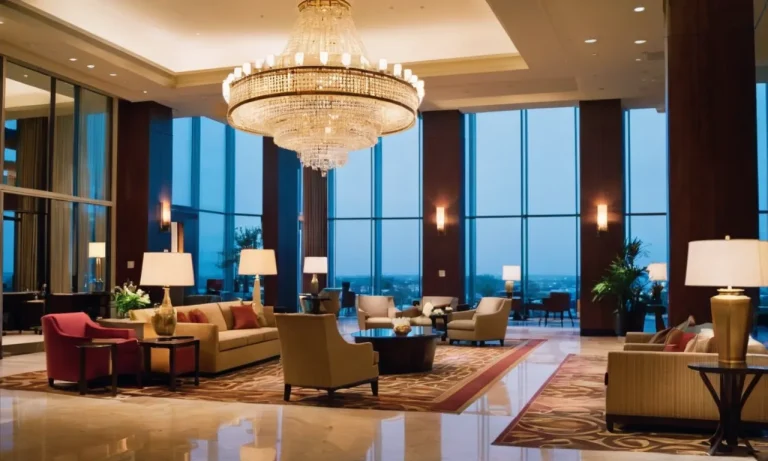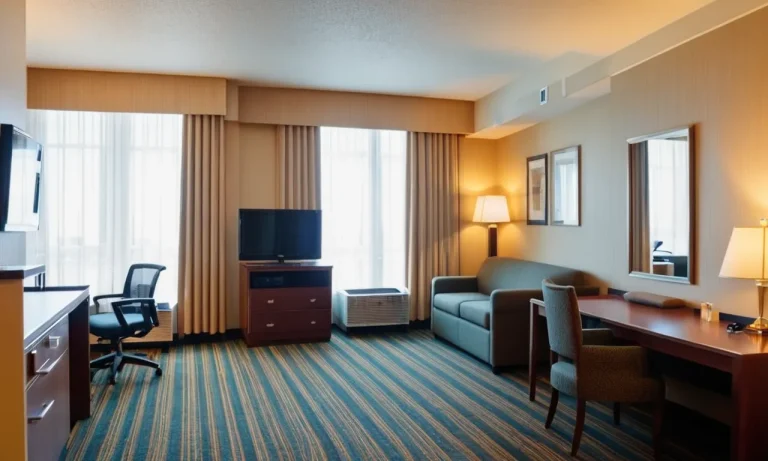Does My Landlord Have to Pay for a Hotel? A Comprehensive Guide
Dealing with unexpected living situations can be a daunting task, especially when it involves your landlord and potential accommodation expenses. If you find yourself in a predicament where your rental property becomes uninhabitable, you may be wondering: does my landlord have to pay for a hotel?
If you’re short on time, here’s a quick answer to your question: In many cases, your landlord may be legally obligated to cover the cost of temporary housing, such as a hotel, if your rental unit becomes uninhabitable due to circumstances beyond your control.
In this comprehensive article, we’ll delve into the details of when a landlord is responsible for providing alternative accommodation, the legal requirements, exceptions, and practical steps you can take to ensure your rights are protected.
Whether you’re a tenant facing an emergency situation or simply want to be informed, this guide will equip you with the knowledge you need to navigate this complex issue.
Understanding the Landlord’s Responsibilities
When it comes to rental properties, both landlords and tenants have certain rights and responsibilities. One of the most important duties of a landlord is to ensure the rental unit meets the implied warranty of habitability.
This legal concept, recognized in most states, requires landlords to provide and maintain livable housing that meets basic standards of safety and sanitation.
Implied Warranty of Habitability
The implied warranty of habitability essentially means that a rental property must be fit for human habitation at the beginning of the tenancy and maintained in that condition throughout the lease term.
This includes providing adequate weatherproofing, heat, water, and electricity, as well as ensuring the premises are structurally sound and free from potential hazards like lead paint or mold. According to Nolo.com, a trusted legal resource, a breach of this warranty can occur if the landlord fails to address major issues that make the rental unit unlivable.
Uninhabitable Conditions
Uninhabitable conditions are those that pose a serious threat to the health or safety of the tenant. Examples of such conditions include:
- Lack of running water or electricity
- Inadequate heating or cooling systems
- Severe pest infestations (e.g., rats, roaches)
- Significant water leaks or flooding
- Hazardous structural defects (e.g., crumbling walls, collapsing ceilings)
If the landlord fails to address these issues within a reasonable timeframe after being notified, they may be in violation of the implied warranty of habitability. In such cases, tenants may have legal recourse, including the right to withhold rent, make necessary repairs and deduct the cost from rent, or even terminate the lease and move out.
Landlord’s Duty to Maintain Habitable Premises
Beyond addressing major issues, landlords also have a duty to maintain the rental property in a habitable condition throughout the tenancy. This includes making necessary repairs and providing essential services like trash removal and pest control.
According to a study by RentData.org, 42% of tenants reported experiencing maintenance issues in the past year, with 18% stating their landlord was slow to respond or didn’t address the problem at all. 😕
If a landlord fails to uphold their duty to maintain habitable premises, tenants may have the right to take legal action or seek alternative housing accommodations. In some cases, the landlord may be required to pay for temporary housing, such as a hotel, while necessary repairs are made.
However, the specific circumstances and local laws will determine if this is an option. It’s always a good idea for tenants to familiarize themselves with their state’s landlord-tenant laws and seek legal counsel if they encounter habitability issues.
After all, having a safe and livable home is a fundamental right that should never be compromised. 👍
When is a Landlord Required to Pay for a Hotel?
As a tenant, you might find yourself in situations where your rental unit becomes uninhabitable, forcing you to seek temporary accommodation elsewhere. In such cases, your landlord may be legally obligated to cover the cost of a hotel stay.
Here’s a comprehensive guide to help you understand when your landlord has to pay for a hotel.
Emergencies and Unexpected Situations
If an emergency or unexpected situation occurs that renders your rental unit unlivable, your landlord is typically required to pay for a hotel stay. This could include scenarios like a fire, gas leak, or any other incident that poses a serious threat to your health and safety.
According to Nolo.com, a reputable legal information website, “If the landlord fails to provide a habitable rental unit, the tenant may be able to find alternative housing at the landlord’s expense.”
Repairs and Renovations
In some cases, your landlord may need to perform extensive repairs or renovations on your rental unit, making it uninhabitable for a period of time. If the repairs are necessary to maintain the unit’s habitability or to comply with local housing codes, your landlord is typically responsible for covering the cost of your temporary accommodation.
However, if the repairs are purely cosmetic or at your request, you may be responsible for the hotel expenses.
Natural Disasters and Unforeseen Events
Natural disasters like hurricanes, floods, or earthquakes can also render a rental unit uninhabitable. In such cases, your landlord is generally required to pay for your hotel stay until the unit is habitable again.
According to a study by Insurance Journal, 😲 over 60% of landlords in disaster-prone areas have faced situations where they had to temporarily relocate tenants due to unforeseen events.
It’s important to note that the specific laws and regulations regarding when a landlord must pay for a hotel can vary depending on your state or local jurisdiction. It’s always a good idea to familiarize yourself with your local tenant rights and consult with a legal professional if you’re unsure about your rights or your landlord’s obligations.
👍
Remember, communication is key. If you find yourself in a situation where your rental unit becomes uninhabitable, promptly notify your landlord and keep a detailed record of all correspondence. This documentation can be invaluable if you need to assert your rights or seek legal recourse.
Legal Requirements and Exceptions
When it comes to landlord responsibilities, the rules and regulations can vary depending on the state and local laws. However, most jurisdictions have specific guidelines that outline when a landlord is required to pay for temporary housing for their tenants. Let’s dive into the details!
State and Local Laws
Each state and municipality has its own set of landlord-tenant laws that dictate the rights and responsibilities of both parties. For instance, according to the Nolo Landlord-Tenant Law Resource, in some states like California and Massachusetts, landlords are legally obligated to provide temporary accommodations or cover hotel costs if the rental unit becomes uninhabitable due to circumstances under the landlord’s control, such as necessary repairs or a lack of essential services like heat or water.
However, in other states like Texas or Florida, the laws are less clear on this matter, leaving it up to the specific lease agreement or court interpretation. It’s crucial to familiarize yourself with the specific laws in your area to understand your rights and obligations as a tenant or landlord.
Tenant’s Responsibilities
While landlords have certain responsibilities, tenants also have a role to play in maintaining the rental property. In many cases, landlords are not required to pay for hotel accommodations if the uninhabitable conditions are caused by the tenant’s negligence or intentional actions.
For example, if a tenant fails to report a leaky pipe, leading to severe water damage and making the unit uninhabitable, the landlord may not be held responsible for covering hotel costs.
Additionally, tenants are typically expected to mitigate damages by taking reasonable steps to prevent further deterioration of the property. Failure to do so could potentially absolve the landlord of their responsibility to provide temporary housing.
Exceptions and Limitations
Even in states with clear laws regarding landlord responsibilities for temporary housing, there may be exceptions and limitations. For instance, some jurisdictions may cap the number of days a landlord is required to pay for hotel accommodations or set a maximum dollar amount.
Additionally, certain situations, such as natural disasters or emergencies beyond the landlord’s control, may exempt them from this obligation.
It’s also worth noting that some lease agreements may include specific clauses addressing temporary housing arrangements. These contractual provisions could potentially supersede or modify the state or local laws, so it’s essential to review your lease carefully.
Navigating landlord-tenant laws can be complex, and the specific circumstances of each case can significantly impact the outcome. If you find yourself in a situation where temporary housing is needed, it’s advisable to consult with a local tenant rights organization or legal professional to understand your rights and options fully.
Practical Steps for Tenants
Documenting the Situation
When faced with a situation where your rental property becomes uninhabitable due to circumstances beyond your control, it’s crucial to document everything thoroughly. Start by taking plenty of photos and videos to capture the extent of the damage or issue.
This visual evidence will be invaluable in supporting your case. Additionally, keep a detailed log of any communication with your landlord, including dates, times, and the nature of the conversations. 🗓️ You can even consider sending a formal letter or email to your landlord, outlining the situation and requesting appropriate action.
According to a study by Nolo, a trusted legal website, approximately 25% of landlord-tenant disputes arise from issues related to uninhabitable living conditions. By maintaining meticulous records, you’ll be better positioned to advocate for your rights and potentially seek compensation or alternative housing arrangements.
Communicating with the Landlord
Open and clear communication with your landlord is essential in resolving any issues related to the habitability of your rental property. Approach the situation calmly and professionally, explaining the situation and your concerns.
Refer to the documentation you’ve gathered to support your claims, and politely request a resolution within a reasonable timeframe. 💬
Remember, most landlords want to maintain a positive relationship with their tenants and avoid legal disputes. By presenting your case in a respectful manner, you may be able to reach a mutually agreeable solution, such as temporary relocation to a hotel or alternative accommodation while repairs are underway.
If your landlord is unresponsive or unwilling to address the issue, don’t hesitate to escalate the matter. HUD’s Tenant Rights website provides valuable resources and information on tenant rights and obligations, which can guide you through the next steps.
Seeking Legal Assistance
In some cases, despite your best efforts, your landlord may fail to take appropriate action to resolve the uninhabitable conditions. If this occurs, it may be time to seek legal assistance. 👨⚖️ Many cities and states have tenant advocacy organizations or legal aid clinics that can provide guidance and representation at little to no cost.
Don’t be afraid to consult with a qualified attorney who specializes in landlord-tenant law. While this may involve some upfront costs, it could ultimately save you money and protect your rights in the long run.
An experienced lawyer can advise you on your options, such as withholding rent or terminating the lease, and represent you in court if necessary.
According to the American Bar Association, approximately 80% of low-income individuals have difficulty obtaining legal representation for civil matters. However, with persistence and determination, you can find resources to help you navigate the legal system and ensure your rights as a tenant are upheld.
Negotiating and Resolving Disputes
If your landlord fails to provide alternative housing or cover the cost of a hotel stay during necessary repairs or emergencies, it’s crucial to handle the situation tactfully. Negotiation and effective communication can often resolve disputes amicably before escalating to legal action.
Here are some strategies to consider:
Negotiating with the Landlord
Start by reviewing your lease agreement and local landlord-tenant laws to understand your rights and obligations. According to Nolo.com, a reputable legal resource, in many states, landlords are required to provide temporary housing if the rental unit becomes uninhabitable due to circumstances beyond the tenant’s control.
Approach your landlord with a calm and respectful demeanor, citing relevant laws and provisions from your lease. Aim for a mutually agreeable solution, such as reimbursement for hotel costs or a rent reduction for the inconvenience.
Mediation and Arbitration
If negotiations with your landlord reach an impasse, consider mediation or arbitration as alternative dispute resolution methods. These processes involve a neutral third party who facilitates communication and helps both parties reach a compromise.
Many cities and counties offer free or low-cost mediation services specifically for landlord-tenant disputes. For example, Fair Housing Project in North Carolina provides mediation services to resolve housing-related conflicts.
Mediation can be a cost-effective and efficient way to resolve issues without going to court.
Small Claims Court
If mediation or arbitration fails, or if your landlord remains uncooperative, you may have to file a case in small claims court. This legal avenue allows you to seek compensation for hotel expenses, rent abatement, or other damages resulting from your landlord’s failure to provide habitable living conditions.
Before taking this step, review the small claims court limits and rules in your state, as there are typically caps on the amount you can claim. Gather all relevant documentation, such as receipts for hotel stays, correspondence with your landlord, and photos or videos of the uninhabitable conditions.
It’s worth noting that according to a recent survey by the American Rental Housing Association, nearly 25% of landlord-tenant disputes end up in small claims court, with hotel expenses being one of the most common issues. While legal action should be a last resort, it may be necessary to protect your rights and recover costs if your landlord refuses to comply with their obligations.
Conclusion
Navigating the complexities of landlord-tenant relationships can be challenging, especially when it comes to determining who is responsible for covering the cost of temporary housing. By understanding the legal requirements, documenting the situation, and taking proactive steps, tenants can protect their rights and ensure they receive the appropriate accommodation and support from their landlord.
Remember, open communication, negotiation, and seeking legal assistance when necessary can go a long way in resolving disputes and ensuring a fair outcome. Whether you’re facing an emergency situation or simply want to be prepared, this comprehensive guide has provided you with the knowledge and tools to navigate the question: does my landlord have to pay for a hotel?







